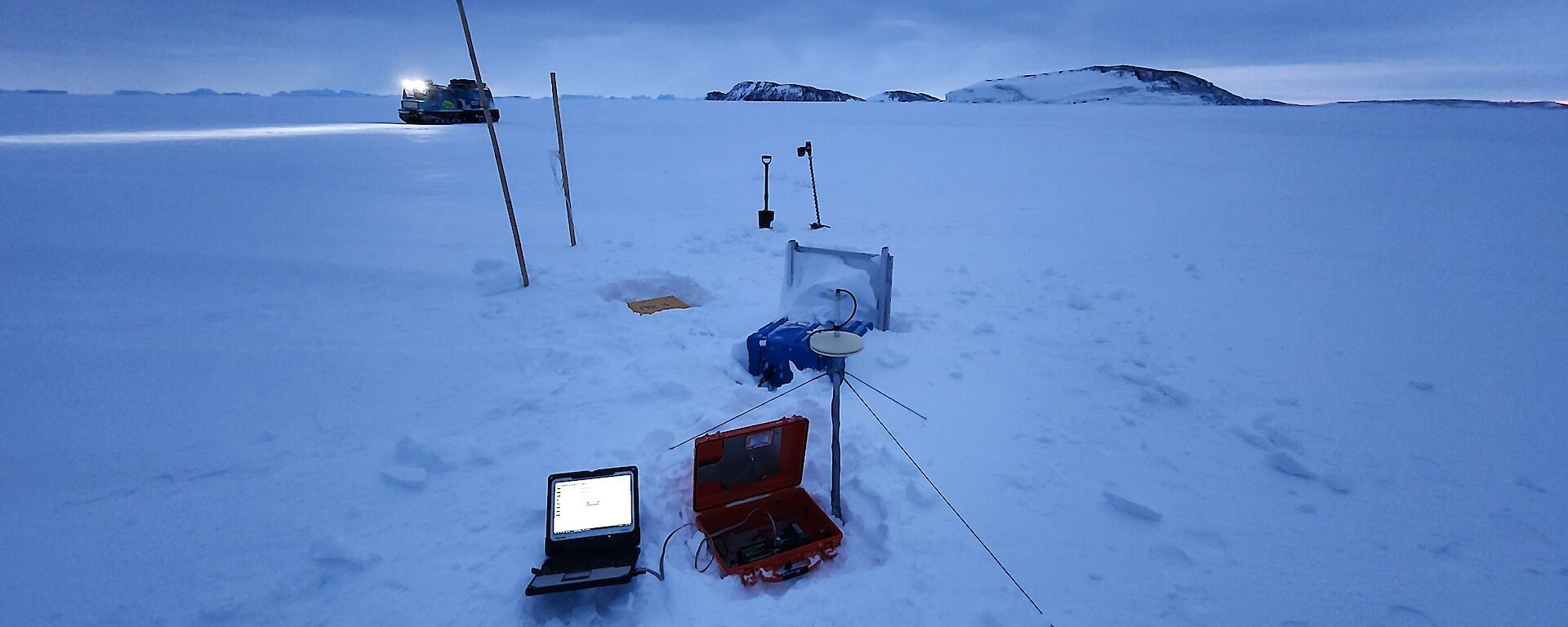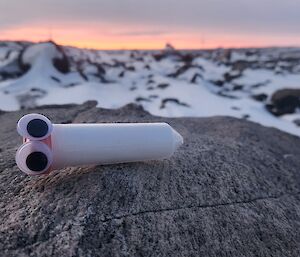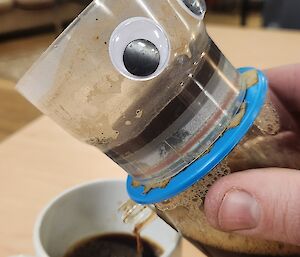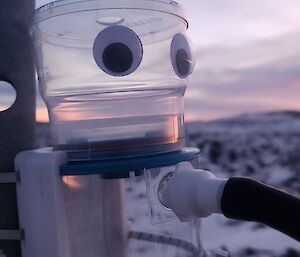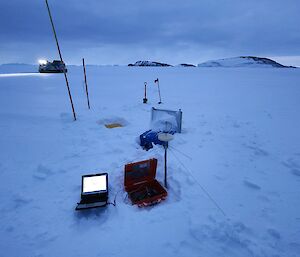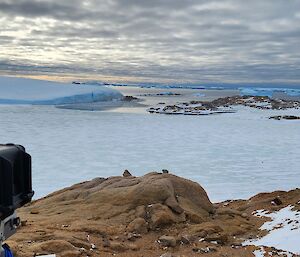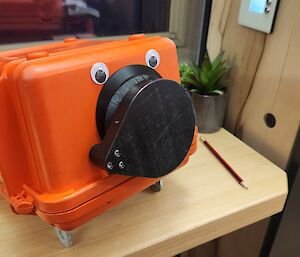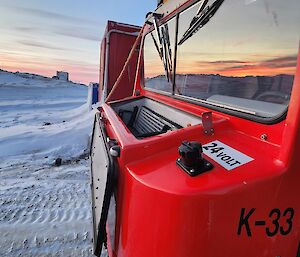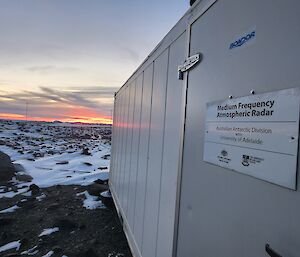My science and engineering journey wasn't a breeze, but it sure has its rewards!
Good morning everyone! Today’s instalment of Station News is brought to you by me! I'm Tom. I live here at Davis and am the Chief Electron Wrangler – when the electrons decide to leave their wires, circuit boards, computers or any other containment device, I'm in charge of chasing them down and putting them back. Some other people use the term Electronics Engineer and say that I'm here to maintain and upgrade the Davis scientific equipment, but a mad scientist either way!
There is so much science going on here. Despite not having too many scientist 'boots on the ground' we are able to gather so much data from automatic sensors. Data can then be instantly sent back to scientists all around the world for their analysis and interpretation. What used to take teams of people hours or days’ worth of work to get single data point, we can repeat many times a minute. While this is great for science and accuracy, modern technology has changed the human's role in the data collection. It’s up to us all to embrace this change and leverage it for our scientific goals. For example, in the Davis region we have nearly 20 automatic nest cameras, which automatically take photos of sea bird nests. Before this technology, gathering this much reliable data would have been impossible or at least require huge teams of people and massive resources. Now these teams of scientists have more time to carefully interpret and analyse these images, making huge discoveries!
Despite modern automatic technology, some projects require constant human attention in the form of me in a lab coat, doing my best Doc Emmet Brown impression. Once such installation is looking for microscopic particles in the air which may assist in the formation of clouds. Every few days it needs samples carefully collected and packaged to be sent back to a lab for analysis. This all must be done with meticulous cleanliness, something my colleagues (and Mum probably!) delight in telling me I lack. These samples are taken from what is essentially a fancy coffee filter. While the particulate analysis has not yet been completed, we can safely say the coffee they make is quite nice!
The lessons Antarctica can teach you is not just limited to what you can and can't make coffee with. We are all so fortunate to be able to learn topics of medical, firefighting, phycology and science, the list goes on. I certainly never thought I would have the opportunity to learn such diverse things like this in my line of work. But here we are! Being in such close quarters with others, you can't help but learn amazing things about everyone's professions. Here is also a great place to learn more about your own profession. I work with electronics, but I never quite appreciated just how harsh this environment can be. The cold and dry Antarctic climate makes electronics do some very strange things!
There are a few sea ice, remote monitoring devices we have installed in front of station. They are essentially briefcases filled to the brim with electronics, and now buried neatly under a good amount of snow. These installations measure the sea ice thickness, temperature, density and any compressive forces that exist within the ice sheet. This provides a far more frequent and precise measurement when compared to the traditional drill and measuring tape method. However, it can only measure a few select locations. The main downside to these automatic installs is that they do not provide any sea ice shavings, which when mixed with the appropriate ingredients make for a well-balanced margarita (non-alcoholic of course!).
Life down here isn't all sea-ice margaritas and coffee. There are many challenges, expected and unexpected, that must be overcome but it's all worth it! I came down here knowing that Jaycar wasn't just down the road, but it's still frustrating when the one part you need is $3 and takes you all day to take everything apart to get just the right component to fix the problem. Sorry old SD card reader, but rest assured you made a valuable contribution to science! Less expected challenges include waking up and seriously questioning if it's 1pm or 1am! Or getting your tongue frozen to a pencil whilst trying to take measurements. Or having your coffee freezing while it's still inside the thermos. While Antarctica sure has its challenges, they are all worth it. It's such a magnificent place – the nature, the scenery, the people you meet, the wildlife. Just amazing.
Watching the wildlife is even part of the job! Scattered through the Vestfolds we have nearly two dozen automatic cameras which take routine photographs of penguin colonies, and other sea bird nest sites, as well as sea ice and iceberg movements. It's not impossible that they are filming the next season of Adelie Big Brother, with stolen pebbles and the endless squawking that ensues. However, it would have been technologically, far easier to film Flamingos. These nest cams, as they are colloquially known as, are a technological marvel, perfectly suited to the Antarctic cold, dark, environment. These cams and many other marvels of science and engineering on station are a testament to the brilliant minds solving all sorts of complex problems at the AAD.
So if you're thinking of studying STEM or applying to come south, please do. There's so much science going on here, and at many other institutions all around the world, and so many mysteries to unravel. It might be a tough journey but just by having a goal, giving it a try and practicing, you're doing so much better; accomplishing far more, than if you had not given it a go in the first place. Like many others, my journey in science and engineering wasn't a breeze, but it sure has its rewards!
PS Hi Mum! Weather is nice, wish you were here! See you soon!
Tom Paynter,
Electronics Engineer
Davis 2024

